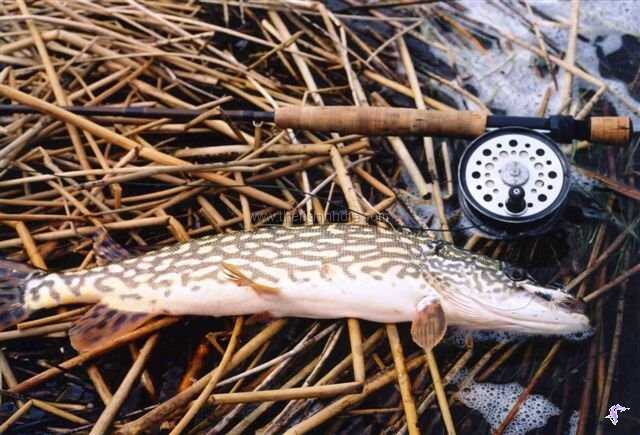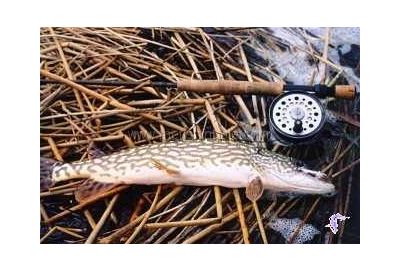The best flyrod for spring angling is not one rod but two rods.
Fly fishing for insect-eating species like brown, rainbow trout or grayling then switching to predator species like pike, walleye, bull and lake trout takes a little attitude adjustment. Not only in how you approach things but the way your rod responds. While a beginning angler can probably get by with a 5 or 6-eight stick for both schools of fly fishing, success with be greatly enhanced with a specialty rod for both disciplines.
For trout angling in streams and ponds a 4 or 5-weight wand will give you the finesse necessary to deliver a dry fly into a feeding lane or feel the delicate pluck of a subsurface trout taking a nymph suspended beneath a strike indicator.
The dynamic fundamentally changes when pursuing Alberta’s water-dwelling preds where power is the name of the game. Here a stiff 8-weight comes into its own, where getting a water-logged streamer fly to turn over in a stiff breeze can at times feel like a contact sport. The extra muscle in the big-fish rod’s spine also comes in handy when the battle begins.
Reels and spare spools loaded with both floating and sinking lines, matched to the rod weight complete the package.
Another tip to avoid the inevitable problem of forgetting a vital piece of equipment is to have a fly vest dedicated to each rod. One stuffed with your delicate trout reels, dry fly boxes, leader spools, floatant, etc. And another armed with streamers, jaw spreaders, stout leader material and needle-nosed pliers necessary for unhooking big pike without turning your hands into ground round.
A wasted tank of gas at today’s prices more than makes up the cost of a second fly vest.




